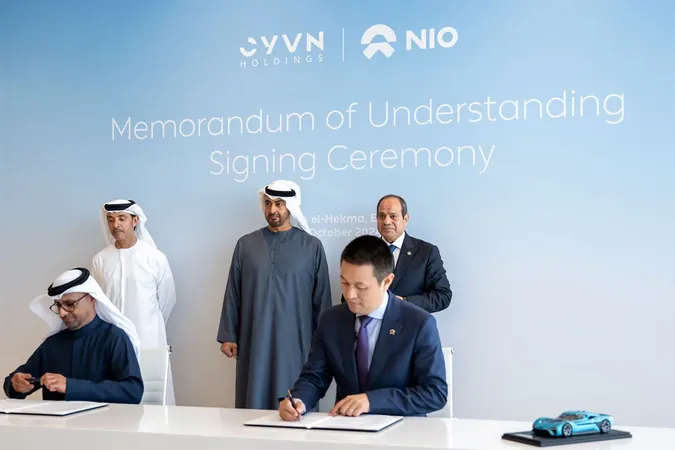
Amazon's Office Mandate Triggers Major Backlash Among Singaporean Remote Workers
2024-10-05
In an unexpected and controversial move, Amazon's CEO Andy Jassy announced that employees must return to the office five days a week starting January 2, 2025. This declaration, made in a memo on September 16, has ignited widespread displeasure among workers who have enjoyed the freedom and flexibility of remote work.
Jassy's message acknowledges that this shift may disrupt many employees' personal lives, yet he firmly stated that the policy is non-negotiable and aligns with his vision for Amazon's future. As the policy swings into effect, employees are grappling with the abrupt transition, expressing concerns over the potential negative impact on their work-life balance.
The Remote Work Revolution in Singapore
The COVID-19 pandemic forever altered the work landscape in Singapore, paving the way for a swift adoption of remote work. As businesses reopen and return-to-office mandates emerge, the ongoing discourse in Singapore reflects a mix of compliance and the need for adaptability.
Initially, the pivot to remote work yielded significant benefits for many organizations and employees alike. However, with the economy slowly regaining its footing, a return to physical workplaces has become increasingly necessary. This shift has introduced various complications as employers and employees adjust to the demands of conventional office life.
Recognizing the risks of a rushed transition, Singaporean authorities have introduced supportive guidelines to ease the return process. Effective December 1, 2024, the Tripartite Guidelines on Flexible Work Arrangement will require employers to consider formal requests for flexible options, like reduced workweeks and remote positions. These guidelines aim to promote a more accommodating work environment, allowing employees to maintain some degree of flexibility even as they return to the office.
Divergent Paths: A Look at Company Policies
While many companies are pushing for a full return to the office, some tech giants remain hesitant, recognizing the value of hybrid work models. The response to Amazon's policy has been particularly critical in Singapore, where a significant percentage of employees—mainly from the Gen Z and millennial cohorts—favor remote work. A recent Universum survey found that 73% of young professionals in Singapore prefer to work from home. Furthermore, Deloitte's research indicates that a staggering 69% of Gen Z and 70% of millennials would actively seek alternative employment opportunities if their employers mandated full-time office work.
As Gen Z is positioned to make up a quarter of the Asia-Pacific workforce by 2025, companies willing to provide remote work options may gain a competitive edge in attracting talent.
Voices From Singaporean Workers
Responses from the public illustrate a general discontent with the looming return to the office. One Reddit user lamented the inefficiencies of commuting, stating, “I detest the time wasted traveling to work, which eats into my personal life. Trying to manage household responsibilities during weekends has become stressful.” This sentiment resonates with many who prefer the comfort and efficiency of working from home.
Another commenter highlighted the toll of long commutes, expressing frustration at losing substantial portions of their day. “A hybrid model would be ideal for team interactions while allowing me to enjoy the productivity benefits of remote work,” they explained.
Amidst the discontent, there are employees who feel trapped in their roles due to the current job market conditions. One disgruntled worker shared their experience, revealing an uncomfortable office atmosphere that hampers productivity. Attempts to communicate these challenges were met with dismissal, leaving them feeling undervalued and stuck.
Navigating the Future
The pushback against strict office returns signifies an evolution in workers’ expectations of their jobs. Both Amazon and other companies must navigate this changing work landscape by listening to their employees' needs and aligning their policies.
The Singapore government’s backing of flexible arrangements, paired with the strong inclination for remote work among younger generations, suggests that businesses may need to find a harmonious balance between in-office requirements and the flexibility that employees desire.
Ultimately, the ability for companies to adapt successfully could determine not only employee satisfaction but also their capacity to attract top talent in a fiercely competitive environment. As the workplace continues to evolve, adaptability and openness to change will be crucial for fostering a productive and engaged workforce.





 Brasil (PT)
Brasil (PT)
 Canada (EN)
Canada (EN)
 Chile (ES)
Chile (ES)
 España (ES)
España (ES)
 France (FR)
France (FR)
 Hong Kong (EN)
Hong Kong (EN)
 Italia (IT)
Italia (IT)
 日本 (JA)
日本 (JA)
 Magyarország (HU)
Magyarország (HU)
 Norge (NO)
Norge (NO)
 Polska (PL)
Polska (PL)
 Schweiz (DE)
Schweiz (DE)
 Singapore (EN)
Singapore (EN)
 Sverige (SV)
Sverige (SV)
 Suomi (FI)
Suomi (FI)
 Türkiye (TR)
Türkiye (TR)